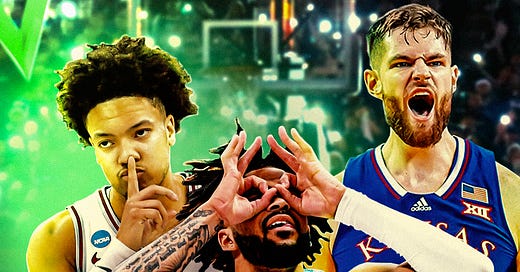College sports have seen a transformation with the introduction of new NIL policies, which have given athletes the chance to capitalize on their personal brands. Not only do athletes benefit from this adjustment, but new policies also have ramifications for fans through the potential return of collegiate basketball video games. EA Sports and other gaming firms can produce more realistic and engaging experiences with real players and their distinct styles by allowing players to be paid for their likeness.
NIL deals provide new opportunities for marketing and promotion in the video game industry. Athletes can now use their social media following to promote the game, forging mutually beneficial partnerships that increase the exposure of the game and their own personal brands. For example, a collegiate basketball match that features rising talents such as Cooper Flagg or AJ Dybantsa could see a surge in popularity, driven by the athletes' engagement with their fan base across social media.
A precedent that might apply to college basketball is set by the reintroduction of EA Sports College Football 25. The popularity of this football game might persuade creators to look into bringing its collegiate basketball equivalent back to life. The possibility of a new collegiate basketball video game becomes more appealing and realistic with the support of NIL policies. Envision a video game that not only conveys the thrill of March Madness but also emphasizes each player's unique experience exploring the transfer portal and NIL options.
EA Sports College Football 25's debut could mark a turning point for the development of collegiate sports video games. Using NIL's strength, this rebirth may open the door for a new chapter in college basketball video games, providing viewers with a more genuine and engaging experience. The idea of a collegiate basketball game comeback is still an intriguing one as we anticipate its debut.




